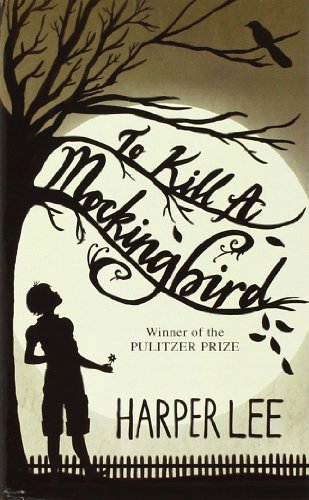All Nonfiction
- Bullying
- Books
- Academic
- Author Interviews
- Celebrity interviews
- College Articles
- College Essays
- Educator of the Year
- Heroes
- Interviews
- Memoir
- Personal Experience
- Sports
- Travel & Culture
All Opinions
- Bullying
- Current Events / Politics
- Discrimination
- Drugs / Alcohol / Smoking
- Entertainment / Celebrities
- Environment
- Love / Relationships
- Movies / Music / TV
- Pop Culture / Trends
- School / College
- Social Issues / Civics
- Spirituality / Religion
- Sports / Hobbies
All Hot Topics
- Bullying
- Community Service
- Environment
- Health
- Letters to the Editor
- Pride & Prejudice
- What Matters
- Back
Summer Guide
- Program Links
- Program Reviews
- Back
College Guide
- College Links
- College Reviews
- College Essays
- College Articles
- Back
To Kill A Mockingbird by Harper Lee
The classic novel To Kill a Mockingbird has ended up on thousands of classic must-read list, school’s required reading (some school even banning the book all together). The book also won the Pulitzer Prize in 1961, and become an Academy Award-winning film, thus it is going to be talked about for hundreds of years. So what is it? This tale told by Jean Louise “Scout” Finch, a girl ageing between seven to nine, in Maycomb County a small town in Alabama, lives in a world she soon realizes is not perfect, and struggles to understand why things are the way they are. From racs, sex, and all between, this classic tale takes the perspective “innocent eye” to a new level.
Scout's mother died when she was two, so she does not even miss her, but Jeremy (nicknamed Jem) does. Jem, her brother, is four years older than her, and like her, lives with her and their father, Atticus, who is one of the few lawyers in the town. Due to his work Atticus was hardly home to raise his children, so Scout and Jem grew up running wild, and being tamed only by their maid, Calpurnia, thus later being named ‘a disgrace to the family’ by Aunt Alexandra. During the summers the ruled the roost with next-door neighbor Dill, who only stayed in Maycomb during the summer. Together they hatched plans to get Boo Radley (the town’s shut in) to come out of his house, something he has not done in years. The children life is soon turned upside down when their father takes the case to defend a black man who supposedly raped Bob Ewell’s daughter. “The main one is, If I didn’t I couldn’t hold up my head in town, I couldn’t represent this county in the legislature, I couldn’t even tell you or Jem not to do something again”, is what their father told them of why he took the case. Following a passionate trial as Scout watches the town turn on her father for standing up against the norm.
The reason this might be your top pick for an essay is the symbolism everywhere. You can read a page of this novel and write an entire essay the way Lee has it set up. One I picked up on was how the children never called Atticus father (unless sometimes speaking to someone else, or referring to a past tense incident). The reason, many speculated because of Atticus poor parenting, never teach his children to call him Mr. Finch, father, or sir (although Jem does in later years). Another reason Atticus might allow his children to call him that, is that he seems them as equal, and does not own them in such way. Playing the part of his character having high morals and reason, allow this to fit his character. Many people know this book for the trial, and although that is the main even happening in part two, it is not the only thing happening. The racism part of the novel shows everywhere and not just at the trial. From Calpurnia, to where they live (the shacks), even to how others talk about them. The reason why this book is banned is the use of the N-word, appearing constantly throughout the novel (so much that if written today it would not be allowed published). Another is the sexism as Scout struggles to fulfill her lady status, as Aunt Alexandra forces her into dresses and to attend tea time with the other ladies. Siblinghood is explained s Jem grows older and becomes colder towards Jean, no longer wanting to play with her, in the world of make-believe. “I found myself wondering what life would be if Jem was different, even from what he was now; what I would do if Atticus did not feel the necessity of my presence, help and advice. Why he couldn’t get along a day without me. Even Calpurnia couldn’t get along unless I was there. They needed me”. Scout discovers her world is not perfect, but it is the only one she has, so along with Jem and Atticus they were going to help get it right, or die trying.
Similar Articles
JOIN THE DISCUSSION
This article has 0 comments.


From races, sex, and all between, this classic tale takes the perspective “innocent eye” to a new level.